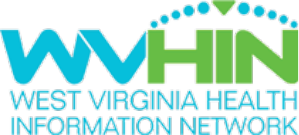STAR HIE Program Accomplishments
The STAR HIE Program has made great strides in supporting public health agencies’ ability to exchange health information during times of emergency.
Accomplishments by Recipient
Bronx RHIO
Bronx RHIO went into production for being able to query vaccinated individuals with the NYC Citywide Immunization Registry (CIR). The cloud-based environment allows for prioritization of facilities based on demand and patient population characteristics. Bronx RHIO has developed cohorts of patient groups of their participants aged 12 and up to do batch queries by facility groups.

Camden Coalition of Healthcare Providers
The Camden Coalition initiated several data acquisition and partnership efforts to provide a holistic clinical picture of COVID-19 testing data and vaccination status. The data sets included Cooper University Hospital, CAMcare Health Corporation, and two managed care organizations who have shared lists of individuals within their region without record of a COVID-19 vaccination. The data sets were integrated into the general patient record within the HIE to run population level reports of the data.
The Camden Coalition also developed a COVID-19 dashboard that populates lab and hospitalization data with associated heat maps that show positive COVID-19 cases and bed utilization based on COVID-19 diagnoses. This data is designed to reduce burden on local and state-level departments of health and provide a real-time and actionable snapshot of where to deploy limited resources.

Colorado Regional Health Information Organization (CORHIO)
Colorado Regional Health Information Organization (CORHIO) is leading the Dashboard Project and is leveraging the STAR HIE Program to obtain access to data for the dashboard. There is no duplication of funding or efforts, rather both projects are leveraging tasks and activities performed under each respective program. Dashboards are both live (vaccine/ laboratory) and viewable for all who have been granted access.
CORHIO is still finalizing their data sharing agreement with CDPHE (Colorado Department of Public Health and Environment). This will be the first data sharing agreement in Colorado between public health and a health information exchange.
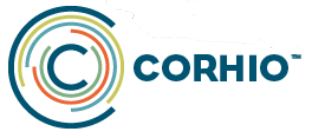
Contexture (Health Current) AZ
Health Current (Arizona) is leading an Arizona Master Person Index Planning Collaborative in conjunction with the Arizona Department of Health Services and Arizona’s Medicaid Agency, Arizona Health Care Cost Containment System. A critical public health infrastructure need that was identified during the program is a statewide master person index (MPI) that ties together multiple public health registries and Arizona health & human services state agencies. Governor Ducey signed SB1505 that included several HIE-related provisions, including permission to allow COVID-19 immunization data to be shared with the HIE and utilized in alignment with statutory provisions. This action allowed Health Current to provide critical data to its participants during the public health emergency related to the COVID-19 pandemic.
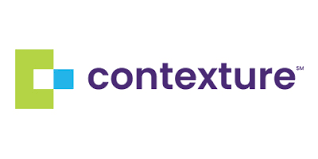
CyncHealth
In May 2021, the Nebraska Governor signed LB411, which allows the HIE to act “as a collector and reporter of public health data for registry submissions, electronic laboratory reporting, immunization reporting, and syndromic surveillance…” LB411 allows the HIE to share Immunization Information System (IIS) data with other providers, as allowed by HIPAA. In November 2021, CyncHealth established a Memorandum of Understanding (MOU) with the State. As a result of this data sharing agreement, vaccination data collected via the Nebraska Immunization Information System (NEIIS), the Prescription Drug Monitoring Plan (PDMP), and the data elements from the Centers for Disease Control and Prevention (CDC) COVID-19 Vaccination Reporting Specification (CVRS) are now broadly shared under the revised statute § 71-541.
CyncHealth developed an Application Programming Interface (API) ecosystem that can support the Nebraska Department of Health and Human Services (DHHS) in its ability to respond to public health emergencies. During the STAR HIE Program, CyncHealth onboarded 14 local public health departments providing access to immunization information during the COVID-19 pandemic. Public Health Departments now have access to complete, matched, longitudinal clinical and medications data, but also access to much-needed social and immunizations data.

Georgia Health Information Network
GaHIN and its partner Velatura Benefit Corporation has established connectivity for hospitals submitting Admission, Discharge, Transfer (ADT) clinical data for populating their COVID-19 reporting database. GaHIN also submitted over 1.2 million patient encounters and lab results that meet the Department of Public Health (DPH)/Department of Community Health (DCH) criteria for COVID-19 reporting. HI-BRIDGE regional HIE established connectivity at fourteen correctional facilities and two large pediatric practices to report COVID-19 data retroactively from October 2021 to the present.

Greater Houston Healthconnect (GHH)
Greater Houston Healthconnect (GHH) is leveraging their STAR HIE Program project to support COVID-19 efforts throughout the broader research community by partnering with the UT School of Public Health on one of the largest COVID-19 outcomes research studies in the world—a study which is longitudinally monitoring over 750,000 COVID-19+ patients over the next several years for their disease outcomes. The STAR HIE Program funding has provided an opportunity for GHH to focus on implementing an analytics platform that will assist in providing meaningful services to local and state public health authorities during the COVID-19 pandemic. Specifically, the UT School of Public Health will leverage the HealthInsight analytic tools to uncover actionable insights on COVID-19+ patients throughout Texas, with broader national and international disease management significance.

HealtheConnect Alaska
HealtheConnect Alaska went live with ImmuTrak at the Camai Community Health Center (a Federally Qualified Health Center) and at the Alaska Heart and Vascular Institute. Providers at these organizations now have access to the COVID-19 vaccination status of their patient population within the health information exchange.

HEALTHeLINK (Western New York Clinical Information Exchange, Inc.)
HEALTHeLINK (Western New York Clinical Information Exchange, Inc.) is sending weekly files to the New York State (NYS) Vaccine HUBs, Regional Centers created by the NYS Governor to help with the distribution of vaccines across NYS. The file contains the percentage of people vaccinated by zip code, race, and ethnicity. The HUBs were created by NYS Governor to help with the distribution of the vaccines across NYS.
HEALTHeLINK has released #’s related to the number of vaccinations and those consumers who have failed to complete their second vaccination. It has allowed specific reporting out to the Office of Addition Services and Supports (OASAS), their regulatory authority, as well as encouraged patient compliance with completing their vaccinations (to include the specific location of their first vaccination).

HealtHIENevada
HealtHIE Nevada partnered with Immunize Nevada, a vaccine health promotion organization, to leverage their existing HIE infrastructure to assemble comprehensive demographic information including age, sex, race, zip codes, and sends immunization data via automated push notification to providers who have unvaccinated patients in their profile. By including demographic information including zip code and race/ethnicity, HealtHIE Nevada helps providers address health equity concerns by proactively engaging their patient population who are under-vaccinated for COVID-19 through targeted outreach campaigns.

HealthShare Exchange of Southeastern Pennsylvania (HSX)
HealthShare Exchange of Southern Pennsylvania (HSX) is establishing a new EMR connection with the Montgomery County Department of Health (DOH) in February 2022. HSX will provide clinical data and encounter notifications for patients of their public health clinics. Montgomery County DOH has approximately 60 providers and public health staff who would benefit from this connectivity.
HSX has expanded its’ efforts in supporting their Region with electronic case reporting (eCR) which helps modernize mandatory disease reporting. These include partnerships with Temple University Health System, Main Line Health System, and Children’s Hospital of Philadelphia.
HSX currently produces surveillance reports for their members and data on race is included. The surveillance reports highlight the disproportionate impact on communities of color down to a zip code level to allow their members to identify areas for improvement and to address them.

Indiana Health Information Exchange (IHIE)
Under the STAR HIE Program the Indiana Health Information Exchange (IHIE) developed a new COVID-19 reporting tool, allowing the Indiana Department of Health and local health departments to consider equity throughout the vaccination process. The reports are available to clinical practices and public health reflecting the percentage of vaccinated population in the state. The IHIE COVID-19 reporting tool is updated weekly for all 92 “Hooiser” counties, giving providers access to weeks of vaccination data as a downloadable PDF. IHIE’s work is impacting stakeholders across the entire state as the Indiana Rural Health Association, Red Cross, and Community Partners bring COVID-19 vaccination data to Indiana citizens.

Kansas Health Information Network (KHIN dba KONZA)
Kansas Health Information Network, Inc. d/b/a KONZA, partnered with State Public Health Agencies to effectively respond to the COVID-19 pandemic. KONZA adapted existing services and products to transport data to public health and ensure healthcare providers have the medical information to provide safe and effective care.
KONZA has been able to develop a solution that allows providers to electronically report COVID-19 lab results to their Public Health Agency. This new product is called Translate Ambulatory Electronic Lab Reporting which is intended to improve the healthIT infrastructure by turning lab messages used by health information exchanges into compliant lab messages for public health reporting. The press release can be found here.
KONZA contracted with the Kansas Department of Health and Environment (KDHE) to create and maintain a data dashboard for obtaining complete and accurate hospitalization information based on ICD-10 diagnosis code for COVID-19.
In addition, KONZA updated the KONZA HQInsight dashboards with COVID-19 immunization data and COVID-19 diagnosis data. This allows physicians and other clinicians to determine if their patients have received a COVID-19 vaccine and if they have been diagnosed with COVID-19.

KeyHIE
KeyHIE operating under Geisinger Clinic has partnered with the Pennsylvania Statewide Immunization Information System (PA-SIIS), operated by the Pennsylvania Department of Health (DOH) to connect local providers administering the COVID-19 vaccine with the Commonwealth of Pennsylvania. This connection enables these providers to submit their COVID-19 vaccination data to DOH, which is a requirement for administering the COVID vaccine in Pennsylvania. Prior to this partnership with KeyHIE, smaller pharmacies and providers were encountering difficulties with sending reporting to DOH electronically, because their electronic tracking systems lacked the capability to interface with the State directly. As a result of these partnerships with KeyHIE, these providers were able to fulfill their obligations as vaccine administrations sites and submit all required reporting in a timely manner through KeyHIE. KeyHIE can accept Comma Separated Value (CSV) files containing vaccination information from participants, and then transform those into Vaccine Update Information (VXU) files to validate and transmit to PA-SIIS. This innovative solution allows Pennsylvania to continue to distribute as many vaccines as possible in an equitable manner and keeps providers compliant as well.
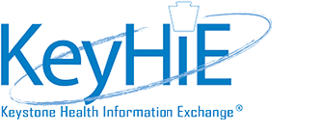
Los Angeles Network for Enhanced Services (LANES)
Los Angeles Network for Enhanced Services (LANES) is receiving and ingesting a flat file of daily vaccinations from the Los Angeles County Department of Health (DPH). They are currently collaborating with the LA County DPH on establishing a cadence for receiving the file. Currently, LANES is the only HIE in California receiving bulk COVID-19 vaccination data directly from a public health agency. Establishing this connection took several months of negotiations between LANES and the California Health Departments. When in place, the Department of Health is now enabled to better prioritize its own resources for patient outreach, contact tracing, disease control, and prevention efforts. In addition, the data augmentation will inform DPH of those disproportionally affected racial, ethnic, and socioeconomic groups.
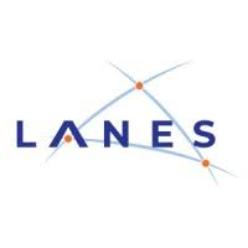
Michigan Health Information Network
Michigan Health Information Network Shared Services partnered with the Patient Education Genius to establish the connection and API end point for MIHIN’s Immunization and Forecast use case. MiHIN launched a data interface and dashboard for the City of Detroit vaccinations. As a result, MiHIN can query the Michigan Immunization Care Registry, the State IIS to obtain vaccination administration and dosage data of individuals in the City of Detroit.
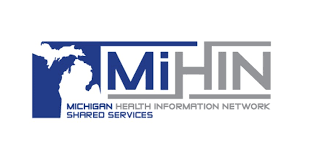
MyHealth Access
MyHealth Access successfully established a data use agreement with the Oklahoma State Department of Health (OSDH). Under this agreement, MyHealth implemented a new data feed that assists small providers with sharing vaccination data with the State. The new data feed reduces provider burden, improves vaccine data accuracy, and increases the timeliness of data reporting to the Oklahoma State Immunization Information System (OSIIS). MyHealth also conducted an analysis of COVID-19 vaccination and hospital readmission for the Oklahoma State Department of Health (OSDH).

Rio Grande Valley Health Information Exchange (RGV HIE)
The Rio Grande Valley Health Information Exchange (RGV HIE) collaborated with UTHealth School of Biomedical Informatics (SBMI) to improve public health by improving the availability and quality of routinely collected clinical data in the Rio Grande Valley area focusing on the National Collaborative COVID Cohort (N3C) data requirements. The N3C is a convenient benchmark in that it is both a national, standards-based collaboration among many institutions (91 executed Data Transfer Agreements) and is focused on COVID-19, an urgent public health priority in the RGV area. RGV HIE integrated data sets in the general patient record within the HIE to run population level reports of individuals in the region without record of a COVID-19 vaccination.
RGV HIE successfully engages in bidirectional data exchange with the Texas Immunization Registry (ImmTrac2) creating a secure channel to transmit data to ImmTrac2, customized HL7 data format to meet submission requirements and setup of AWS (data center) to support inbound connectivity to HIE. The primary benefit to the community is the availability of a HIE data hub allowing participating organizations to electronically import patient and immunization data into ImmTrac2 without the burden of manual data entry.
RGV HIE implemented a new web-based form to submit notifiable conditions reporting to local health departments and Texas Public Health region 11. The web-based form created serves as an alternative to paper-based forms for submitting notifiable conditions required by Texas State law to local health departments and the Texas Department of State Health Services (DSHS).
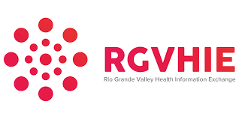
Rhode Island Quality Institute (RIQI)
Rhode Island Quality Institute (RIQI) completed a direct connection to the Rhode Island Child and Adult Immunization Registry (“RICAIR”) on 2/2/2022. This direct connection eliminates the need for receiving and ingesting a file and gives them real-time data to providers. This connection also gives patients access to their COVID-19 vaccination status as part of their medical record. Because of their strong relationship with the Rhode Island Department of Health (RIDOH), RIQI is reducing public health burden through a connection between CVS Minute Clinics and RIDOH. This connection allows RIDOH to receive COVID-19 testing information directly from the CVS minute clinics in addition to the following: delivery of COVID-19 vaccination data to the Rhode Island provider community through the HIEʼs existing provider facing tools. Current enhancements include immunization detail such as “which arm” a patient received their vaccination in as well as dosage and lot number.
Identification of high-risk patients for use by RI public health agencies to increase targeted COVID-19 vaccination strategies, specifically those high-risk patients within health equity zones.

Texas Health Services Authority (THSA)
Texas Health Services Authority successfully tested a new Health Level Seven (HL7) implementation guide that will benefit sharing of hospital resource information in the future.
THSA demonstrated standards-based, real-time reporting of hospital capacity data for the purpose of reduced burden on hospitals and improving data. THSA successfully participated in a Connectathon, which demonstrated and validated the base Situational Awareness for Novel Epidemic Response (SANER) Project concept with two real-world EMRs.

The Health Collaborative
Health Collaborative established its data use agreement with the Northern Kentucky Department of Health (NKDOH), expanding their data sharing capabilities. Health Collaborative gained access to deidentified Immunization Information System data sets and mapped incoming HL7 & VXU (vaccine transactions) from provider EMRs into its data warehouse to its Master Patient Index for patient matching and developing comprehensive reports to the NKDOH. Through this collaboration with the NKDOH, the Kentucky Cabinet for Health and Family Services provides the Health Collaborative with updated COVID-19 related immunization records quarterly.

West Virginia Health Information Network (WVHIN)
Within six months after receiving the STAR HIE Program award, the WVHIN began sending COVID-19 breakthrough cases, reinfections, and variant reports weekly to epidemiologists at the West Virginia Bureau of Public Health. The WVHIN implemented the ImmuTrak vaccination tracker service (a service licensed from CRISP) at two large physician practices, one Federally Qualified Health Center, and three Medicaid Managed Care Organizations. As a result of the work WVHIN performed under the award, all Medicaid Managed Care Organizations in West Virginia are now credentialed ImmuTrak users. ImmuTrak allows providers to download the vaccination status of an entire patient panel. This prevents providers from having to query the WVSIIS system one patient at a time, thereby reducing burden. WVHIN now sends reinfection and breakthrough reports to the West Virginia Bureau for Public Health weekly. By making the vaccine data available policymakers are able to measure COVID-19 reinfection and breakthrough rates while identifying outbreak locations.
